Circular Basin: Difference between revisions
| Line 49: | Line 49: | ||
= Results = | = Results = | ||
[[Image:CB3_Analytical_No_Coriolis_V4.png|thumb|left| | [[Image:CB3_Analytical_No_Coriolis_V4.png|thumb|left|800px| Figure 1. Analytical current velocities and water levels.]][[Image:CB3_Calculated_No_Coriolis_V4.png|thumb|right|800px| Figure 1. Calculated current velocities and water levels.]] | ||
[[Image:CB3_Analytical_Coriolis_V4.png|thumb|left| | [[Image:CB3_Analytical_Coriolis_V4.png|thumb|left|800px| Figure 1. Analytical current velocities and water levels.]][[Image:CB3_Calculated_Coriolis_V4.png|thumb|right|800px| Figure 1. Calculated current velocities and water levels.]] | ||
<br style="clear:both" /> | <br style="clear:both" /> | ||
Revision as of 19:18, 20 May 2011
UNDER CONSTRUCTION
Problem
Dupont (2001) presented an analytical solution for a closed circular domain on an f-plane with a linear bottom friction. The governing equations are
| (1) |
| (2) |
| (3) |
where and are the depth-averaged current velocities in the and directions respectively, is the gravitational constant, is the water surface elevation with respect to mean sea level, is a linear bottom friction coefficient, is the radius of the domain, is the water depth, and is a constant equal to the gradient of the wind forcing.
Solution
The analytical solution for water surface elevation solution is given by
| (1) |
The current velocities are independent of the Coriolis parameter and are given by
| (3) |
| (4) |
Setup
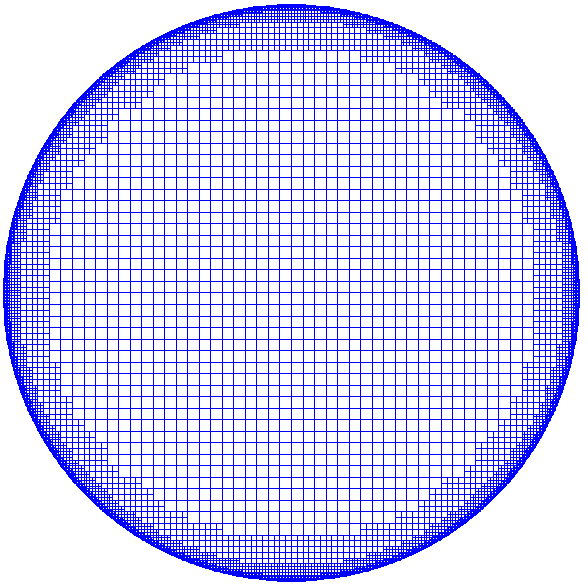
The model is run to steady state from zero current and water level initial conditions with , , and . Table 1 shows the general settings used for CMS-Flow. Figure 1 shows the computational grid with 5 levels of refinement from 2000 m to 125 m.
Table 1. General Settings for Wind-driven flow in a circular basin
| Parameter | Value |
| Time step | 3600 s |
| Simulation Duration | 72 hrs |
| Ramp Period | 24 hrs |
| Initial Water Depth | 10 m |
| Mixing Terms | Off |
| Wall Friction | Off |
| Linear Bottom Friction Coefficient | 0.001 |
Results
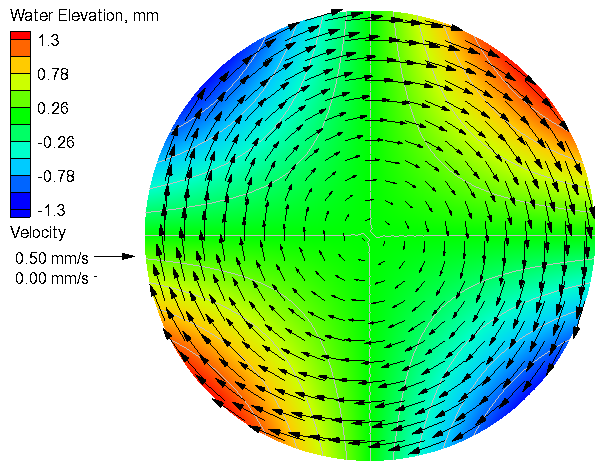
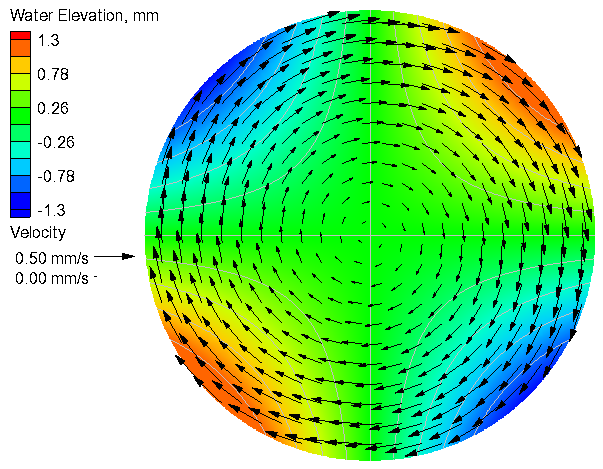
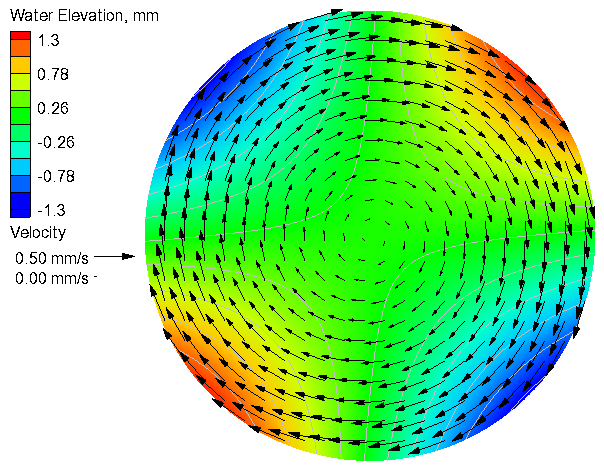
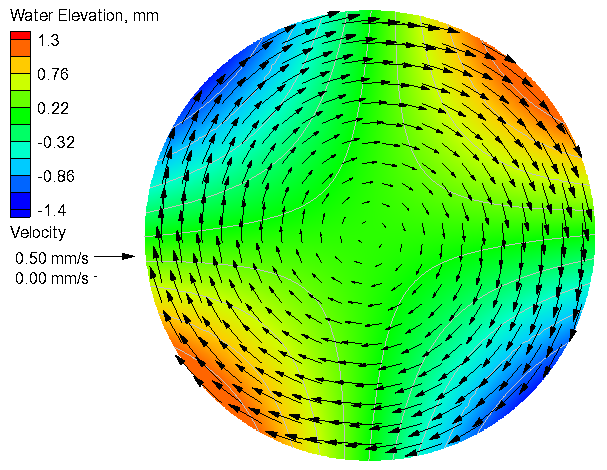
Table 2. Goodness of fit statistics for the current velocity and water level
| Variable | RRMSE, % | RMAE, % | R^2 | Bias |
| U-Velocity | 3.88 | 0.64 | 0.997 | -4.06e-5 |
| V-Velocity | 3.87 | 0.64 | 0.997 | 4.06e-5 |
| Water Level | 0.16 | 0.13 | 1.000 | -3.56e-6 |
References
- Dupont, F., 2001. Comparison of numerical methods for modelling ocean circulation in basins with irregular coasts. Ph.D. thesis, McGill University, Montreal.